
Mantra. What’s playing in your head?
Ever had a catchy, repetitive pop song stuck in your head for days? Annoying isn’t it. But the fact that our Minds have the ability to do this, means we can create and have playing in our minds much more useful things. “I can handle it”…”I can handle it”…”I can handle it”… for instance. Now wouldn’t that be a much more useful thing for your Mind to be automatically saying to you? A phrase like that. Something you purposefully put in your Mind and repeat over and over until it “sticks” is a Mantra.
The truth is that I can have my Mind saying all the negative automatic junk it usually says or I can literally tune in and listen to my Mantra. Now I’m sure you’ll agree that having “I can handle it” or ” I can learn to like it” are much more useful and hugely less problematic for me as opposed to my Mind saying “I’m a terrible writer”, “no one will read this article” “why am I bothering” etc etc . The Mind , if we let it, will literally bombard us with this negative crap all day long won’t it?
A Mantra is literally any word or phrase that you purposefully repeat in your Mind over and over again until it eventually “sticks” in your Minds. At this point it just starts playing all by itself in the back of our Mind, all day long. Check it out for yourself and you will see this is much nicer to have going on in there than the alternative. The predominantly negative stuff.
A Mantra can be one “meaningless” word or a “phrase” that you believe and can get behind. The only thing to be mindful of though is that the “word” or particularly the phrase you pick needs to be quite neutral so that the automatic Mind doesn’t get hooked into it and start thinking about too much. If possible try to pick a word or phrase that your Mind is less interested in.
Now it takes a while to have a Mantra “stick”. First when we start the Mantra is weak. But through repetition of saying it over and over again, which will be a nicer thing to have going on in your head, rather than the usual negative automatic stuff, it will get stronger. Eventually it will create a layer in your mind and then just be there going on in the background whenever you need it. A strong Mantra becomes like a haven to go to when the other part of your Mind is driving you crazy, making you react to things or just creating a negative experience inside of you.
You may have first heard of Mantra in connection to spiritual and religious practices but the use of mantra in that way is NOT what I am talking about here. Here I am talking about how Mantras can help us with our mental health.
Having a Mantra that works for you, embedded in your head, rather than listening to the usual junk your Mind spews out is just sensible isn’t it? And with a little bit of hard work, effort and persistence creating a Mantra can be a complete game changer and is another way to “Get to Grips with the Mind”.
It’s a good idea to work on your Mantra and keep strengthening it whenever you remember to do so or when you know you are going to have extended periods of “free time”. I often work on my Mantra when I take the dog out for a walk. Instead of listing to stuff on I Tunes (which I used to do) I now choose to work on repeating and strengthening my mantra. So while I am walking around or picking up Dog Pooh – I am actively repeating “I can handle it…I can handle it…I can handle it”.
Please let me know if you found this little article on Mantra’s useful. Your feedback is really useful.
I wish you and your Mantra well.
Learn More
Why do Bad Past Experiences stay in us?
There are two possible types of learning from painful or difficult experiences in our past. The first is a physical learning. If you put your hand on a hot kettle when you are a kid you learn not to do it again. It does not create any anxiety in you when you see a hot kettle the next time – does it? But if you have an emotionally difficult experience it’s a completely different story. When you have an experience that is emotionally upsetting, you simultaneously create a thought in your mind. This is mental learning.
Let’s say your emotionally difficult experience was around failing at something and that created sadness in you. The thought or thoughts now created in your mind by this experience are something like “Sadness is bad” ” I must not fail”. The difference between the kettle experience where there is no thought created is that experience just naturally stays in the past. Whereas the experience of failure has created thought formations in you that will live in you until you die. You therefore can not leave the difficult emotional experience in the past as those thought formations are now “stuck” in your mind.
The answer is to learn how to let go of the difficult past experiences stuck in our minds. If you would like to learn more about this process click here.
Learn More
Let Go of Your Blockages
Life will show us where we are blocked, if we allow it to do so.
Then it is a question of knowing two other things. Firstly that we can handle the disturbance, emotion inside of us that is blocked. You see eventually if we give it the space and room, it will leave us when it is ready not when we are.
And secondly, we see that releasing the blockages inside of us will dramatically improve the quality of our life and the lives of everybody around us. That it is without doubt the way forward and the kindest thing you could ever do for yourself in this lifetime.
Life is sooo kind. You don’t have to go looking for where you are blocked. You don’t have to ask where do I start? You just have to listen to when in your life as you go about your day you are disturbed inside of you. Something someone said or did. Something you hear or see. Something that someone didn’t do or didn’t say. What in CBT Therapy we call “an external trigger”. Meaning something happens in the outside world and you have a disturbance inside of you.
If you think this is vague or a bit general, it’s because any, literally any experience you have during the day can hit your stuff and show you where you are blocked. To illuminate in that moment what you have stored inside of you and what you therefore need to release. For your sake and everyone elses.
Most of the stuff we experience during the day just passes straight by (or more accurately) straight through us. But if you are willing to look you will see that some of what you experience during the day disturbs us. Creates ripples on the calm lake of our psyche. Creates a disturbance inside of us.
How do we leave the past where it belongs in the past? We need to remove the blockages inside of us. How do we remove them? We release them. We let go of them inside of us.
Learn More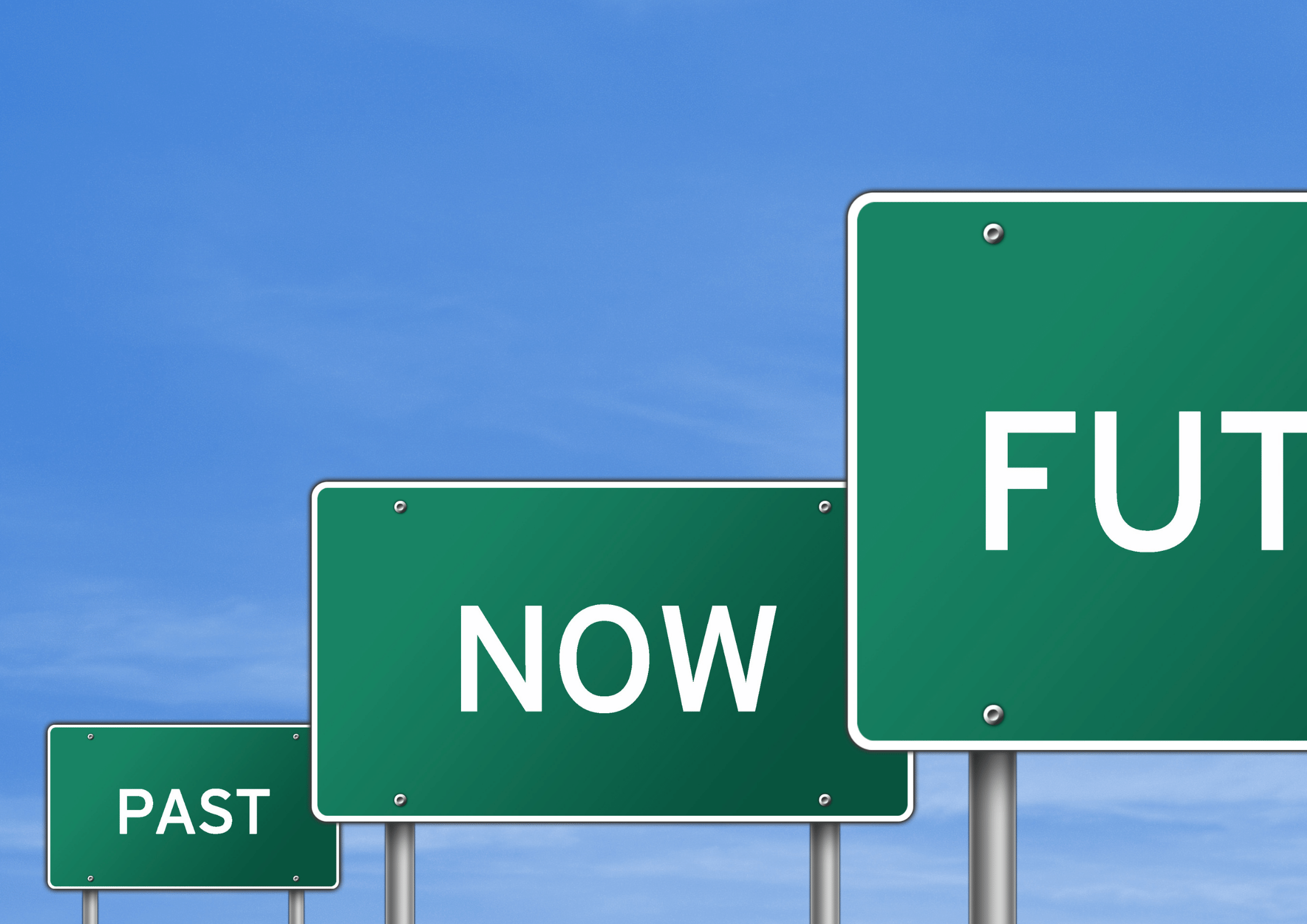
Past and Present Focus in CBT Therapy
Although CBT is a therapy that predominantly focuses time, effort, change, and attention on the things that are creating an experience in the present day. CBT does not just stop there. CBT also recognises that our past has a huge influence on who we are in present day. How we think and how we behave. For a therapist to disregard or ignore this fact when treating a patient is a kind of professional negligence. For a client or patient to be blind to this fact is also extremely unhelpful and often a barrier to their recovery.
Our minds are a creation of every experience we’ve had in the past good and bad, pleasant and unpleasant, nice not nice, wanted not wanted. The way that you think, the things you believe about yourself, about other people and the world and life itself are a direct consequence of the past creating and shaping the mind you have right now in the present day.
Many behaviours that we do in the present day whether it is to protect yourself, whether it is to fix something about ourselves that we believe is wrong, or whether it’s just to compensate for some perceived inadequacy or failure inside of us. All have their roots in the past and past experiences. Other more easily recognised behaviours ie Avoidance behaviours, safety behaviours, OCD behaviours. addiction behaviours eating behaviours all stem from the past.
BF Skinner the renowned Behaviourist famously said “Man is a product of his past experiences.” Although his quote adds weight to the fact that CBT Therapy should consider the past when working with clients. However what Skinner said is not actually correct. Your mind is in fact the creation of your past experiences not you. This is a very important distinction.
So I hope that’s helpful? I just want to spend a little bit of time to explain the difference between the focus of past and present when it comes to CBT Therapy I wish you well.
Learn More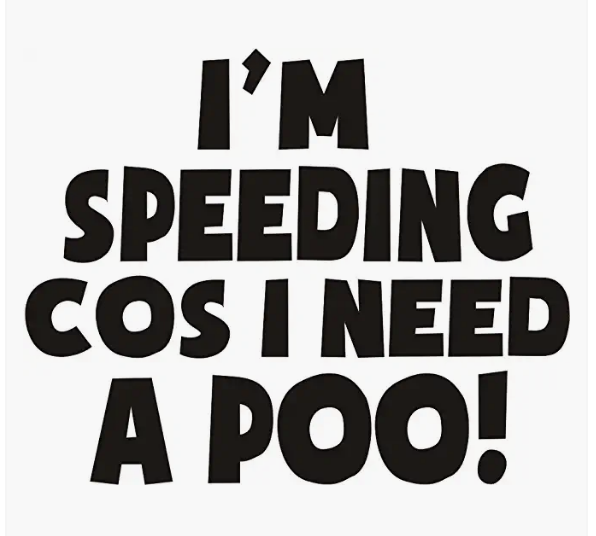
Be Open to Life.
“Be Open to Life” is not a cheesy bumper sticker. It’s an essential way of being if you want to have a nice life. The opposite is being closed to life and shutting off from the experiences you are having. Particularly the “difficult” ones. The consequences of doing this are catastrophic and the damage done is invisible but nevertheless real.
Learn More
How Responsible Are You?
What actually in this life are we responsible for?
This is an important question because if we take responsibility for things that we’re not actually responsible for that is a massive problem.
Actually one of the interesting things about us human beings, is we often take responsibility for things that are not our responsibility and often avoid taking responsibility for things that actually,when is all is said and done are down to us.
Obviously this can’t end well. This is not going to lead to a happy and fulfilled life. It can unfortunately lead to big problems not only inside of us but also outside of us.
Learn More
For a Nicer Life -Let Go of Expectations
When it comes to meditation it is very important to let go of the expectations we put on ourselves and of the meditation itself. We need to take all these pressures off ourselves. It’s really unkind to expect so much. Particularly as Meditation is one of the hardest things you can do.
We expect our mind to be instantly clear. We expect to feel better straight away. We expect to be able to concentrate for long periods of time even though we haven’t been practising for very long. And if any of these things aren’t happening we naturally feel disappointed, a sense of failure or that something is wrong.
We expect so much when we first start and this is just another layer of suffering that we put on top of everything. And it’s not just in a meditation practice we do this – is it? When you really look we do this throughout our entire waking day.
So if you can ease off from the expectations you place on yourself and of the meditation itself, slowly and gradually, you’ll start to ease off on the expectations of yourself and your life.
You expect too much and we put too much pressure on ourselves today and ultimately it’s just not kind. If you follow this advice in your meditation practice you’ll have a much lovlier experience. All the best. I wish you well.
Learn More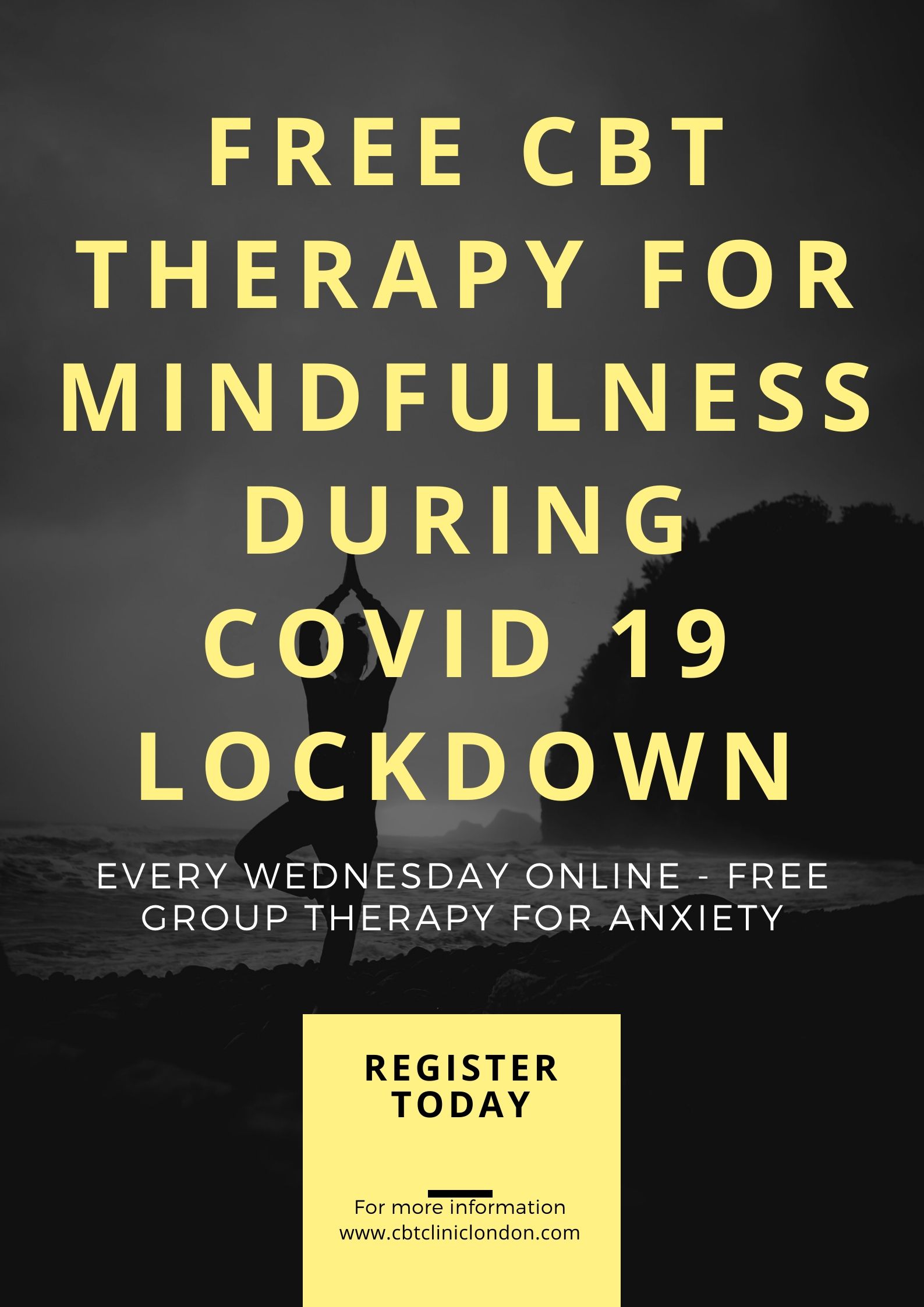
Corona Virus Anxiety London – Free Mindfulness Therapy Online Every Wednesday
Right now (April 2020) we are dealing with a very unusual, disruptive and downright scary issue. Many of us are worrying about how COVID-19 is going to affect our day to day existence, finances, our health and our future.
To feel anxious at this present time is natural. Everyone is processing this event with some level of anxiety, and everyone has different mechanisms for coping with the prospect of the Coronavirus arriving on their doorstep.
Alistair Bond from CBT Clinic London is launching a series of free online “Lunchtime Mindfulness Meditation” Classes starting on 01/04/20 from 12 pm – 1 pm. These classes are open to all and aim to help you to navigate the anxiety caused by the stressful situation we are all facing.
Book A Free Anxiety Therapy Course Online Now – Every Wednesday
Click here to book your FREE online therapy group mindfulness session now on a Wednesday that suits you.
“Everything originates from this moment. It is the only thing we have. Now more than ever, is the time to stay grounded and present”, says Alistair Bond, Mindfulness Meditation Teacher, from The CBT Clinic London.
“We need proven ways to stop our minds from jumping too far ahead into the “scary” future. In these challenging times, we must seek out practices that bring more acceptance to the problematic thoughts and feelings that accompany this new reality, we find ourselves in. I don’t know a better way to do that than engaging in Mindfulness Meditation. This is why I think it is vital for me to provide these FREE classes for anyone who wishes to learn this life-affirming and highly practical skill.”
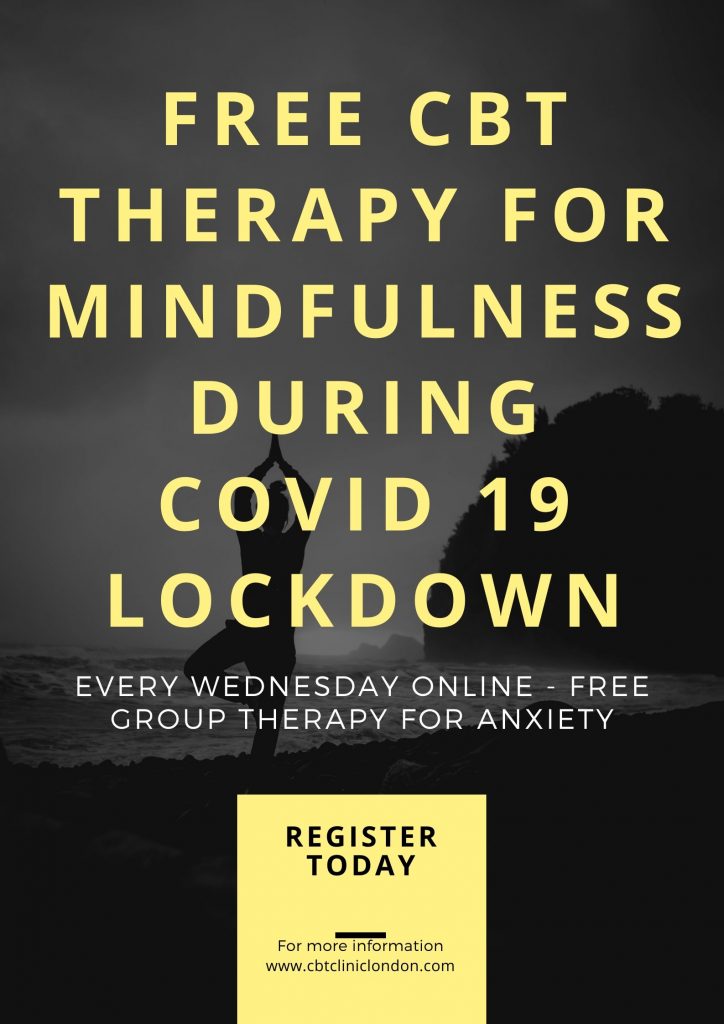
What is anxiety?
Anxiety is a natural response to high levels of stress which is often brought about by feelings of fear about the future. We all experience anxiety differently and with a varying level of ferociousness. The symptoms can build up over time and the focus of our anxiety can change. You may have a constant “sinking feeling” in the pit of your stomach, restlessness and difficulties in concentrating. Whilst others may experience, muscular tension, a racing heart, feeling hot or sweaty or difficulties with sleep.
Anxiety, if left unchecked, can build up to a point where we may experience a Panic Attack. This is where the mental anguish felt transcends into an extreme physical state and can be experienced as feeling faint, heart palpitations, chest pains, dizziness, shortness of breath or dry mouth. Often we misinterpret these symptoms and believe we are going to have a heart attack, suffer a stroke or lose our minds. Which keeps us stuck in a vicious cycle of panic.
How Does Mindfulness Help Anxiety?
In light of what we are now facing with the COVID-19 pandemic, anxiety within us could be created by so many issues. Money worries, isolation and loneliness, worrying about the wellbeing of relatives, food availability, the fear of getting or spreading illness, redundancy, your career/ business, your health or your future goals to name but a few.
There are many ways in which Mindfulness Meditation can help reduce the stress response created in our bodies and minds at times like these. By learning how to connect more deeply to the present, learning how to respond rather than react and bring a greater acceptance to our current experience, we can activate our “self – soothing” mechanism leading to an increased sense of well being inside of ourselves.
In our article about Mindfulness, we explored in more detail about the benefits of Meditation and how connecting to the present and accepting our feelings can help us gain peace within our bodies and minds.
In this unprecedented time, we are being forced to deal with an influx of new feelings and thoughts which are unfamiliar and unwelcome. The ‘noise’ we now may have to filter out is that of our own internal dialogue brought about by these feelings, as well as the constant news updates you may feel compelled to watch.
Mindfulness can help us filter this noise and forces us to carve out some space in our new and temporary regime in order to help us connect to the present and not get caught up in a future we have little or no control over.
Online Guided Meditation for Anxiety
You can join us online for our free Mindfulness Meditation classes starting on 01/04/20 from 12 pm- 1 pm. The 60-minute meditation class will be presented over Zoom (www.zoom.us) and is open to everyone. Zoom software is free to download and just takes a few minutes. To book yourself a place on our free Mindfulness Meditation classes click here.
Learn More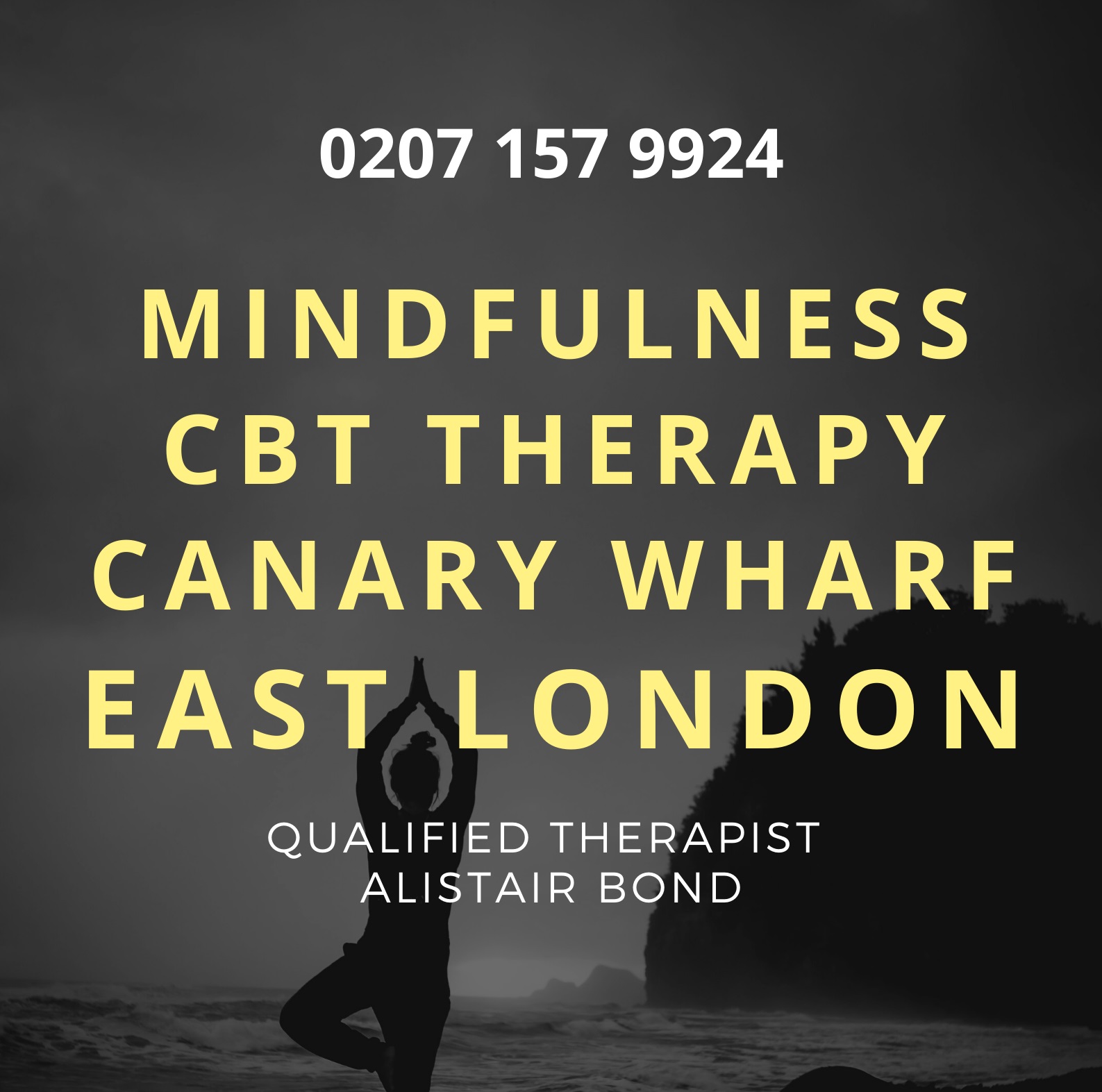
Mindfulness Meditation for Anxiety and Stress
If you are feeling stressed, anxious, have poor concentration, dwell on the past, worry excessively, are trapped in overthinking or are having trouble sleeping, you may find that mindfulness meditation will help you cope better with the pressures that everyday life can bring.
Mindfulness and meditation are separate practices, but they go hand in hand to help alleviate certain thought processes and patterns of behaviour which can cause stress or distress and are often an underlying factor in some health conditions. Mindfulness is essentially the practice of being ‘aware’ of something, such as thoughts, behaviours, feelings or movements, and the world around you. In paying attention to the present, you can make great steps to improve your overall mental well-being.
To help facilitate a state of ‘in the moment’ mindfulness meditation is practised, helping ease the mind of external influences and allowing us to focus inwards. This helps us to identify the thoughts and sensations we are experiencing and see the ‘present’ with more clarity.
Find out more about our London Based mindfulness meditation classes or to book a one-to-one session contact us on 0207 157 9924 or email info@cbtcliniclondon.com.
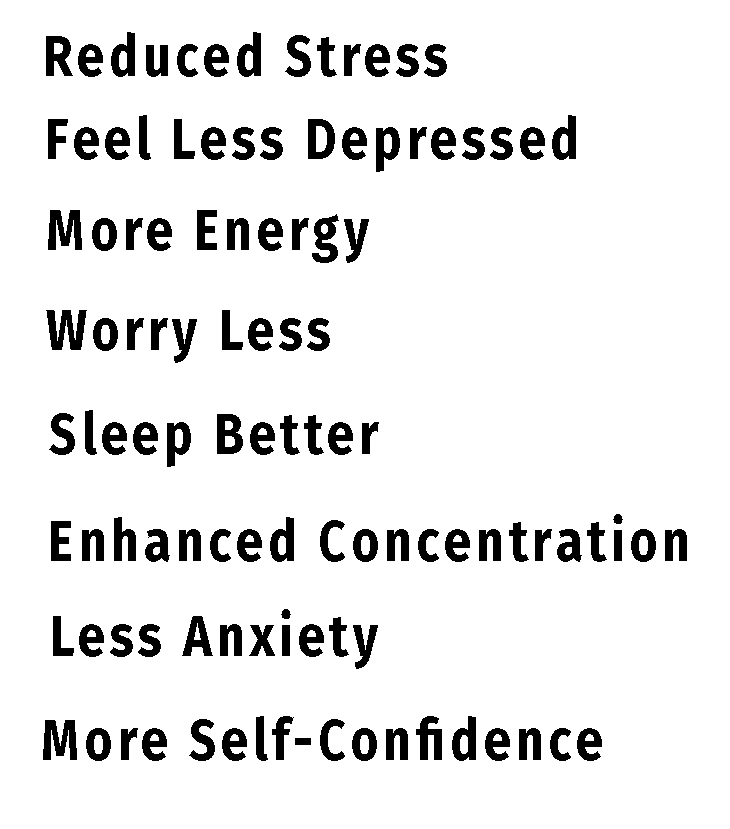
Benefits of Meditation
The benefits of mindfulness and meditation are well documented and scientifically proven. Many of our clients who work in high pressure, professional environments often have psychological challenges that they feel are holding them back or are affecting their quality of life. Issues such as anxiety, insomnia, stress, high blood pressure, low energy levels, depression, headaches & migraines, restlessness, and problems concentrating can all be managed with mindfulness and meditation techniques.
The practice of mindfulness meditation is gaining more and more recognition as a useful tool in combating issues that are born out of modern-day living. In fact, the NHS recognises mindfulness as a way to help improve mental health and well-being in adults and children alike.
Mindfulness and Meditation Courses London
Mindfulness and meditation gives us the chance to step out of our hectic lives and simply observe and listen to ourselves, our thoughts and our bodies whilst feeling at ease in our surroundings.
The CBT Clinic London is based in the Royal Foundation of St. Katherine, London, E14 8DS and we offer a non-religious, non-spiritual, purely practical approach to meditation and mindfulness.
For details about our London mindfulness classes please contact us on 0207 157 9924 or email info@cbtcliniclondon.com.
Private Sessions in Mindfulness Meditation
You can arrange a private one to one session to practice mindfulness meditation which can either take place in the clinic or remotely over Skype, Zoom or Facetime.
Some clients feel more at ease in practising in a one to one format others find practising in a small group suits them better. Either way, we can discuss the best approach to your mindfulness practice so that you feel at ease.
If your lifestyle means that fitting in a regular day or time for a group class can be challenging, then you may find that one to one sessions or the Skype/Zoom/Facetime option would suit you better.
Mindfulness Classes in London
For details about our London mindfulness classes please contact us on 0207 157 9924 or email info@cbtcliniclondon.com.
Learn More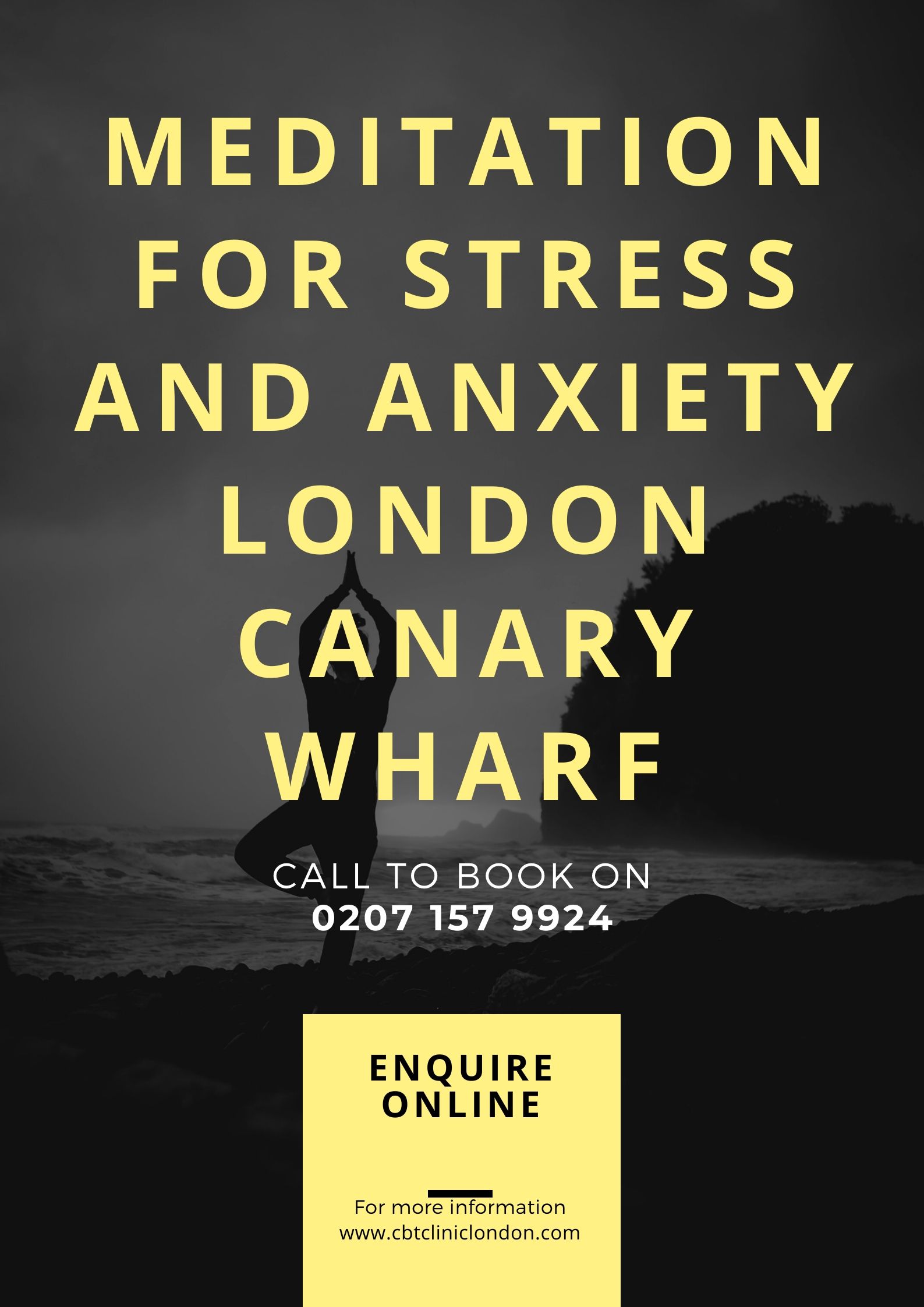
Meditation for Stress and Anxiety – Canary Wharf, East London
For information about our meditation classes in Canary Wharf, East London email our team now on info@cbtcliniclondon.com or call 0207 157 9924.
Learn More